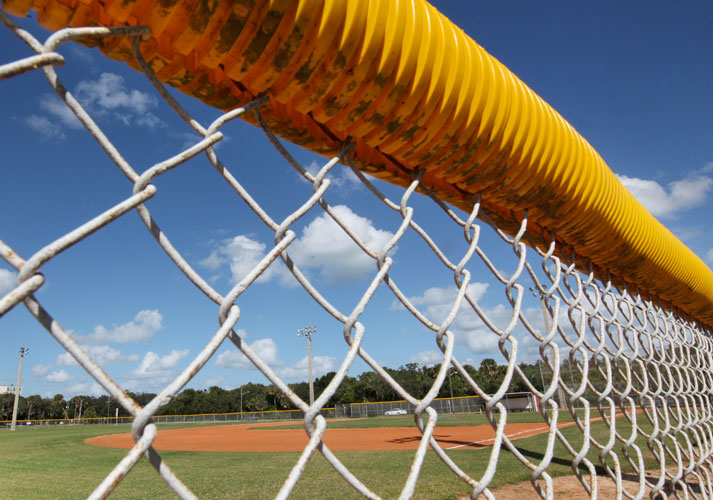VERO BEACH — The Little League of Indian River County’s baseball program for teens had all of $25 left in its account when it closed its books after the season ended on the island this year.
The $25 was by no means a windfall for the non-profit, which gives 13- to 17-year-olds the chance to dream about rounding the bases with the grace of Ted Williams or powering a baseball out of the ballpark with Babe Ruth-like swagger.
The group usually winds up with a zero balance.
Now, city leaders for the first time are proposing to pass utility bills that run about $31,000 a year on to the various Little League and softball programs that play night games on its baseball fields, according to Rob Slezak, the head of the city’s recreation department.
City officials have long used utility revenues to pump millions of dollars into its general fund, but those dollars won’t be there if the city sells the electric utility to Florida Power & Light.
The looming utility bill makes one Little League official nervous. The teen program, as well as two other Little League and girls’ softball programs, currently pay the city $150 per team for use of the fields or its services.
That only generated $5,580, said Slezak.
To ask the four ball clubs to foot the entire utility bill right now would cripple them, said Joe DeStephan, who heads the program for the 13- to 17-year-old boys who play at Bob Summers Field on Indian River Drive.
City Council members appear to understand that but they say something has to be done. The baseball programs are the most expensive programs the recreation department runs.
“It isn’t fair for the city to shoulder the entire budget,” Councilman Dick Winger said.
Councilman Craig Fletcher agreed.
“They need to step up to the plate,” he said.
That could be tough.
Little League sponsorship has been down since the economy tanked.
“We are struggling just like everyone else,” DeStephen said. “Sponsorships are down to almost nothing.”
Fee changes appear to be coming and not just for the ball clubs. The city’s recreation commission is expected to address the fees when it meets Nov. 13.
The goal is to increase fees enough to generate between $30,000 and $60,000 in revenue, Slezak told the recreation commission last month.
New fees could go into effect in January.
City Council members could take up the matter in December, said City Manager Jim O’Connor.
Slezak has told the Little League leaders to expect to the changes and to continue to try and raise money while helping curb expenses.
The senior Little League program charges teens $95 to play ball, but has never turned anyone away who cannot afford the program.
This year five boys were allowed to play without paying.

